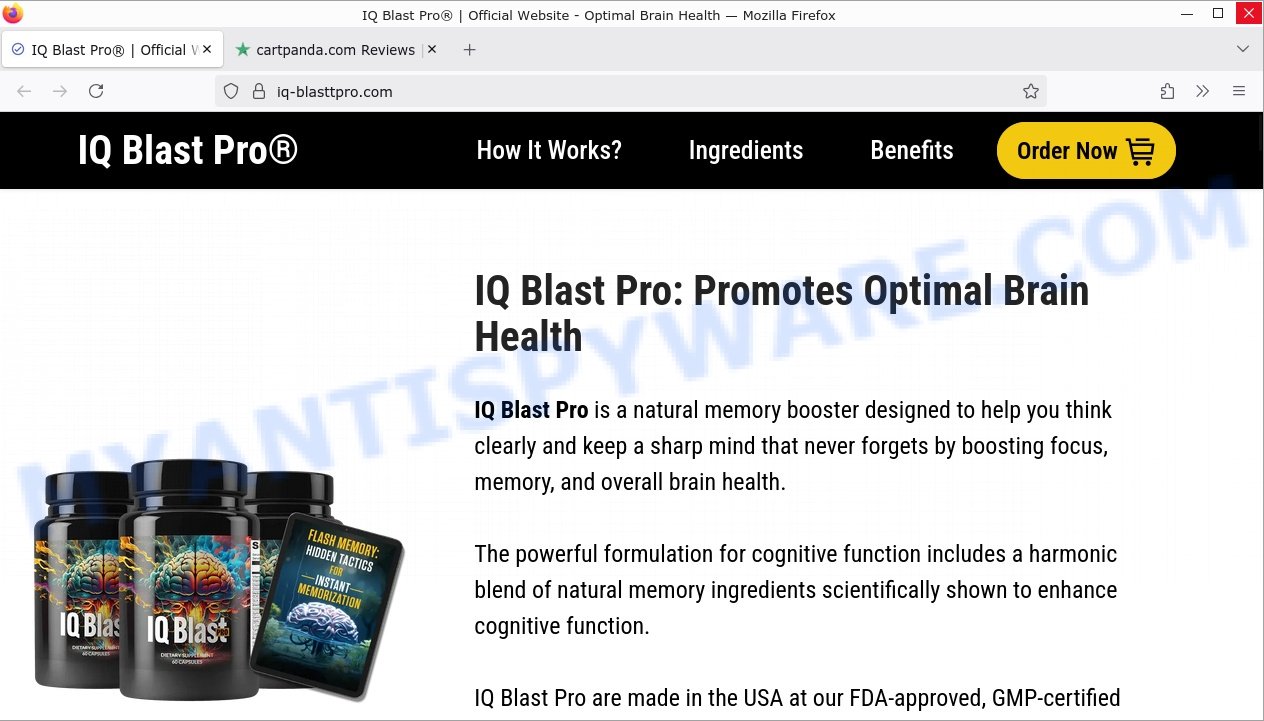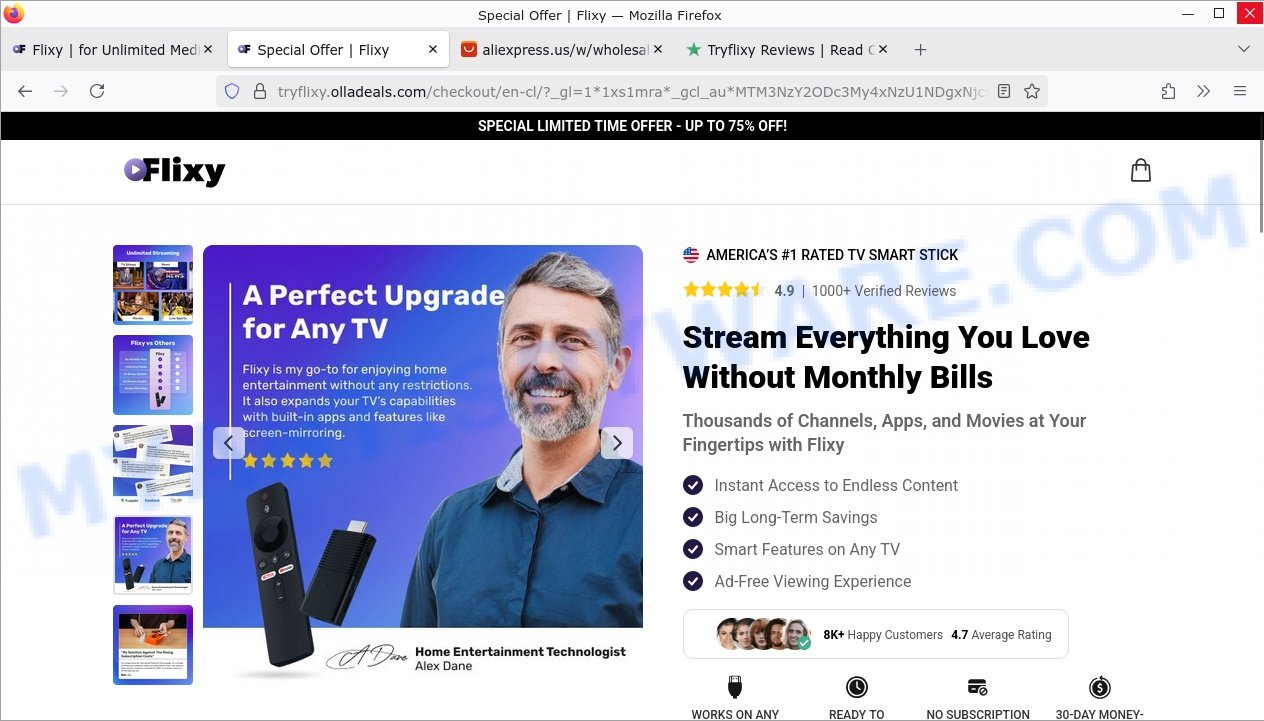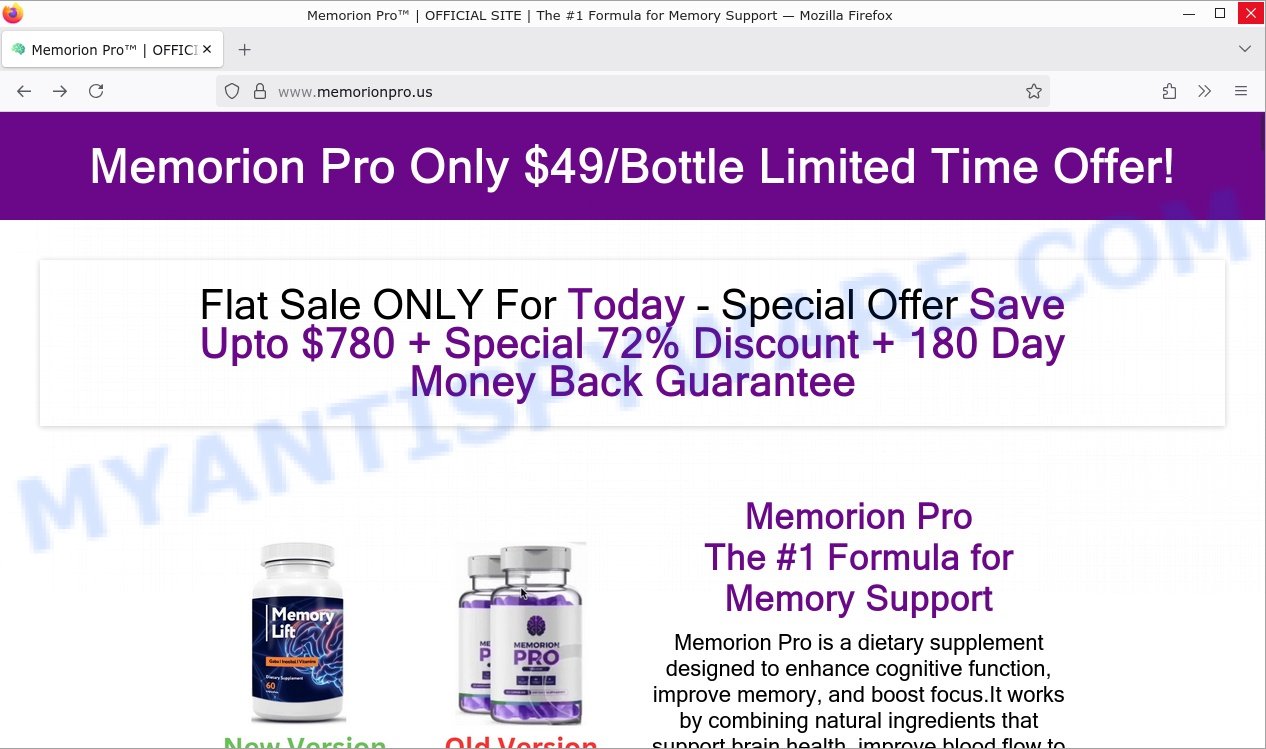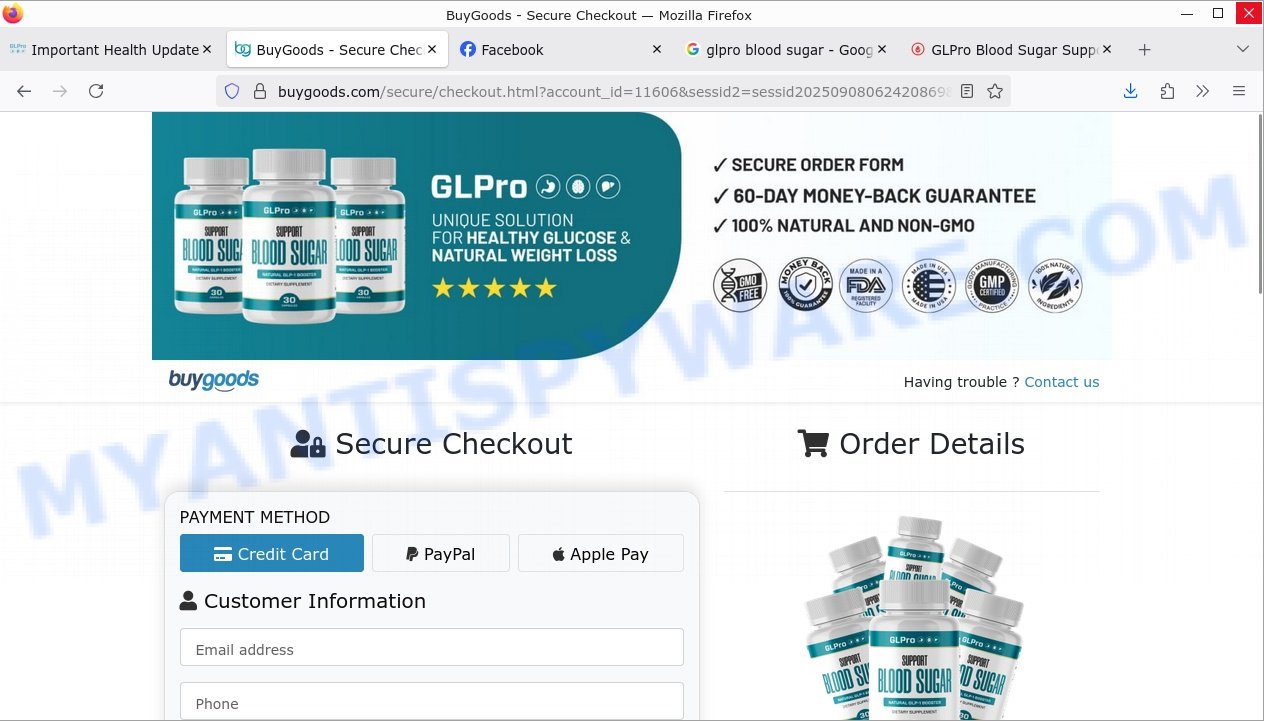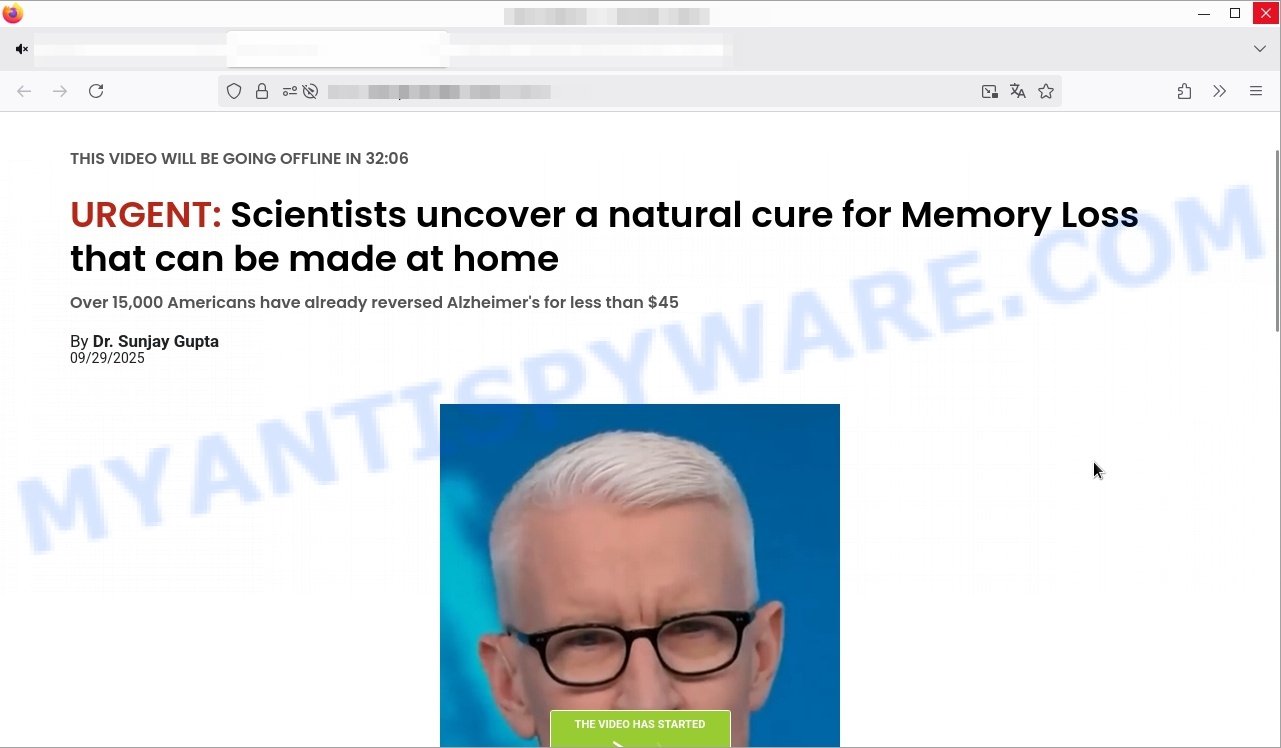Scammers are aggressively pushing Memyts — a so-called memory support supplement that falsely claims it can reverse Alzheimer’s, cure dementia, and restore lost cognitive functions. Their promotional campaigns heavily rely on deceptive deepfake videos showing impersonations of celebrities like Carol Burnett, Dr. Sanjay Gupta, Anderson Cooper, and Bruce Willis. These fake endorsements are designed to trick viewers into believing Memyts has prestigious backing, but in reality, no real doctors or famous figures are associated with this product.
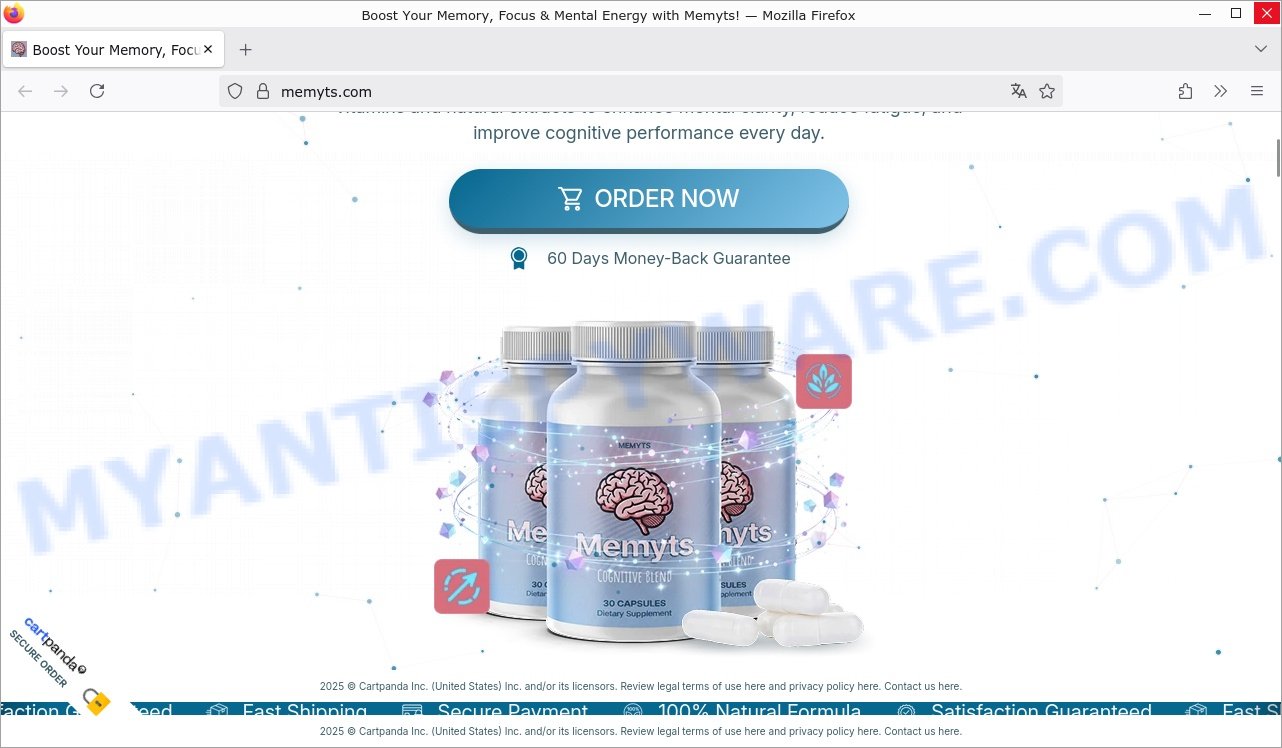
Memyts marketing is widespread on platforms like Facebook and Instagram, using slick videos filled with misleading information and false promises. The ads hype a “secret honey recipe” combined with a “traditional Indian root” as a breakthrough for memory loss—but after lengthy presentations lasting over an hour, no such recipe is ever shared. Instead, viewers are relentlessly pushed to buy overpriced pills that have no proven effectiveness. The so-called money-back guarantee is dubious at best, typical of scams that rarely honor refunds.
The official Memyts website and marketing funnel also feature fake glowing reviews and AI-generated doctor testimonials with improbable statistics designed to build trust through deception. Consumers should be suspicious of urgent sales tactics like “limited-time offers” meant to pressure hurried purchases.
If you’ve come across Memyts or similar products, know that there is no miracle supplement for Alzheimer’s or dementia. Scientific research shows that while some ingredients might offer minor cognitive support, they cannot reverse serious memory conditions. Always consult a qualified healthcare provider if you or a loved one are struggling with memory issues.
💡 Heads-up: Similar Scams Are Everywhere. Memyts is not unique. It is one of many fake supplements, gadgets, and other schemes we expose in our Fact Checks section. All of them aim to grab your personal data or money. The people behind these scams run slick websites, spread bogus promo codes, and even pose as trusted brands or experts. Below are a few recent scams that follow the same playbook as Memyts: Sugar Defender, Blood Vitals Glucose Monitor, Debbie’s Dresses, Global Health Farms CBD Gummies, Memorion Pro.
Table of Contents
🚨 Is Memyts a Scam?
Memyts is aggressively promoted using deceptive marketing tactics that involve deepfakes of well-known figures like Carol Burnett, Dr. Sanjay Gupta, Anderson Cooper, and Bruce Willis. These so-called endorsements are entirely fabricated using sophisticated AI-generated visuals and audio to falsely imply credibility to those seeking solutions for memory loss.
Key Red Flags:
- 🌐 Deepfake Celebrity Endorsements: The ads use convincing fake videos featuring celebrities and doctors who have never endorsed Memyts. This manipulative tactic is intended to trick consumers into believing the product is legitimate.
- ⭐ Fabricated Testimonials and Reviews: Memyts is promoted with unrealistically high ratings, such as “4.92 out of 5” based on fictitious thousands of reviews. These are manufactured to boost trust but cannot be verified.
- 🔒 False Claims About a “Secret Honey Recipe”: The lengthy online presentations promise a simple traditional remedy involving honey and an Indian root to cure Alzheimer’s and dementia. No such recipe is disclosed, and it serves only as bait to sell overpriced pills.
- ⚠️ Unrealistic Health Promises: Memyts claims to reverse Alzheimer’s and dementia, which is unsupported by any credible scientific evidence. No dietary supplement can cure or reverse these conditions.
- 📉 Misleading Money-Back Guarantee: The claim of a customer-friendly refund is unreliable since scammers often do not honor such guarantees once payment is made.
- 👤 AI-Generated Doctors and Urgency Tactics: Fake healthcare professionals appear in ads, combined with pressure strategies like limited-time offers designed to rush uninformed purchases.
- 🔗 No Official Endorsements or Legitimate Affiliations: Neither doctors, celebrities, hospitals, nor universities endorse Memyts. Any companies with similar names are unrelated to this fraudulent scheme.
In summary, Memyts is a predatory supplement scam leveraging deepfake technology and false claims to deceive vulnerable consumers seeking relief from memory loss. It falsely promises Alzheimer’s cures and misleads with fake reviews and celebrity endorsements. Consumers should avoid purchasing Memyts, be cautious of similar scams, and consult qualified healthcare professionals for legitimate diagnosis and treatment options related to memory issues and dementia.
🕵️♂️ How the Memyts Scam Operates
Scammers behind Memyts begin by running highly targeted ads and sponsored posts on social media platforms like Facebook and Instagram. These ads exploit deepfake technology, featuring realistic but entirely fake videos and audio of celebrities and experts such as Carol Burnett, Dr. Sanjay Gupta, Anderson Cooper, and Bruce Willis, falsely endorsing the product. The claims promise miraculous improvements in memory loss, Alzheimer’s reversal, and cognitive function through a “secret honey recipe” combined with a “traditional Indian root”.
When users click these ads, they’re taken to slick but deceptive sites like memyts.com, designed to resemble trustworthy health websites. Instead of straightforward text, much of the content is embedded in images or video, making it difficult for consumers to verify claims through simple research. This gives an illusion of legitimacy, suggesting Memyts is backed by medical experts and reputable institutions — none of which is true.
A core tactic involves using deepfakes and AI-generated audio to create fake endorsements, giving the impression that real doctors and celebrities support the supplement. The scam sites also display fake badges, bogus certifications, and fabricated positive reviews, often boasting glowing ratings like “4.92 out of 5 stars” based on tens of thousands of reviews. However, independent review platforms have no record of genuine Memyts reviews, exposing these testimonials as fraudulent.
The marketing relies heavily on urgency and scarcity tactics such as “Limited Time Offer” and “Only a Few Bottles Left” to pressure consumers into quick purchases. They promise a money-back guarantee, but in reality, refunds are either extremely difficult to obtain or never honored. After purchase, victims commonly report aggressive upselling of additional products with claims of savings, as well as unauthorized recurring charges and dead-end customer service.
The long, drawn-out video presentations promise to reveal a “secret recipe” during hour-long pitches but ultimately deliver nothing except an overpriced bottle of pills with no proven benefit. The product ingredients (like Bacopa, Huperzine-A, and B-vitamins) may offer minor cognitive support but absolutely cannot reverse dementia or Alzheimer’s disease as falsely claimed.
In summary, the Memyts scam uses advanced deepfake technology combined with misleading marketing, fake testimonials, and unsubstantiated health claims to deceive vulnerable consumers seeking memory loss remedies. There is no credible scientific backing or legitimate endorsements behind Memyts, and it is important to avoid purchasing this product or trusting its promotional materials. If you are concerned about memory issues, consult a qualified healthcare professional rather than falling for these predatory tactics.
😱 What to Do If Scammed
If you find yourself ensnared by the Memyts Scam, immediate action is crucial. Here’s what you should consider doing:
🛑 Stop Further Transactions
The first step is to halt any additional transactions that might be in process. Contact your bank or credit card provider and inform them that you’ve fallen victim to a scam. They can help by blocking the card or reversing any unauthorized transactions.
📞 Report the Fraud
File a report with your local police and provide all the available evidence, such as screenshots, emails, and website URLs. Additionally, report the scam to online portals like the Better Business Bureau (BBB) at www.bbb.org or the Federal Trade Commission (FTC) at reportfraud.ftc.gov. If you’re in another country, reach out to your national consumer protection agency.
💻 Take Screenshots
Before the scam website gets taken down or changes, make sure to capture screenshots of your transactions and communications. These can serve as evidence if you decide to pursue legal action.
⚖️ Consult Legal Advice
Speak to a legal advisor about your situation. While pursuing legal action may be time-consuming and costly, it could be a possible avenue for recovering your lost money.
📢 Share Your Experience
Use social media platforms to share your experience and warn others about the scam. Your story could prevent someone else from falling victim to the same or similar scams.
Conclusion
The Memyts is a scam, employing sophisticated deepfake videos and AI-generated audio to fabricate endorsements from celebrities like Carol Burnett, Dr. Sanjay Gupta, Anderson Cooper, and Bruce Willis. These deceptive tactics create an illusion of legitimacy that misleads consumers into believing the product is a genuine solution for memory loss and Alzheimer’s disease.
The marketing of Memyts revolves around false claims of a secret “honey recipe” and a traditional Indian root that can reverse Alzheimer’s and dementia, none of which are substantiated or ever revealed. Instead, viewers are subjected to lengthy presentations that culminate in a push to purchase overpriced pills with unproven benefits. The so-called money-back guarantees are unreliable, and the product has no scientific backing to support its claims.
Additionally, Memyts manipulates trust further through fake reviews boasting unrealistic ratings like 4.92 out of 5 based on tens of thousands of reviews, and uses urgency tactics such as “limited-time offers” to pressure quick purchases. While some ingredients listed — like Bacopa, Huperzine-A, and B-vitamins — may offer minor cognitive support, they cannot cure or reverse Alzheimer’s or dementia as falsely advertised.
Bottom Line: Avoid Memyts. It is a predatory supplement scam that leverages deepfake technology and false endorsements to exploit vulnerable individuals seeking help for memory loss. Always consult qualified healthcare professionals for diagnosis and treatment rather than relying on unproven, misleading products promoted through deceptive online marketing.
If you or someone you know experiences memory issues or symptoms of dementia, seek medical advice promptly and be cautious of any supplement that promises miraculous cures, especially when backed by suspicious advertising tactics.
